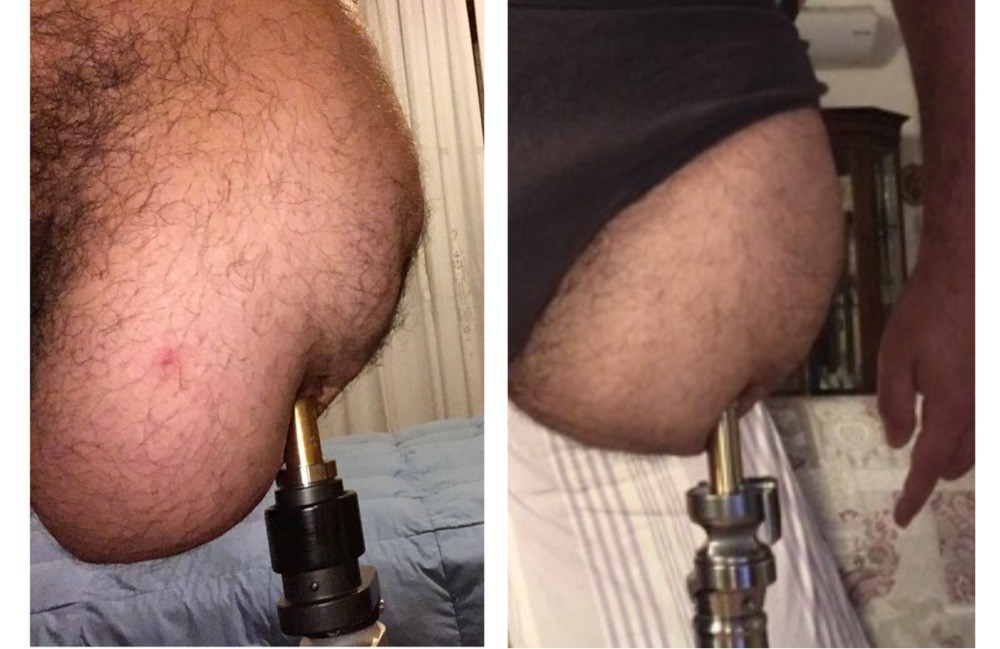
What is stoma revision surgery?
Some people with a bone-anchored prosthesis develop problems with the stoma over the years. This could be pain or irritation or problems with cleaning the stoma. Occasionally the stoma may retract slightly, or there may be an excess of skin, especially on the inside, which causes irritation. Especially with implants from older generations, the bone can also recede slightly, which is often harmless but can cause stoma complaints.
Surgical revision
Some stoma problems can be treated with a surgical revision. A minor operation is then performed to correct the stoma, sometimes including the placement of a so-called ‘sleeve’. During the operation, excess skin tissue can be removed, the appearance of the stoma can be changed, and irritating parts of the implant can be covered with a sleeve. The sleeve is a metal sleeve that is placed on the implant. This operation is usually performed under general anesthesia or with an epidural injection.
Who is eligible for stump/ostomy revision?
- Mechanical complaints in the socket or with bone-anchored prosthesis
- There is a clear causal relationship between the complaints and the findings on clinical and/or imaging examination
Who is not eligible for primary amputation of an arm or leg
- There are still surgical options to preserve the extremity
- The complaints do not justify primary amputation
- There are psychological abnormalities that play a role in the desire for amputation
- There are doubts about the indication
What can be the benefits of an amputation?
- No more complaints of problematic arm or leg
- Making a fresh start with a prosthesis
What are the risks of an amputation?
- Irreversible operation
- Limited mobility
- Problems (with healing) of the stump that sometimes require further shortening of the stump
- Phantom sensation or pain or stump pain
- Problems with the socket prosthesis
- Risk of falling, especially at night when you want to get out of bed
Our goal? A better quality of life
At AOFE Clinics, our dedicated revision services focus on improving the quality of life for patients who have undergone ileostomy, colostomy, or related procedures. Stoma revision surgery is often considered due to severe complications that can affect the function of stomas, such as stomal prolapse or parastomal hernias at the abdominal wall.
Our approach is designed to manage these issues with precision and care, utilizing the latest techniques in stoma repair to create improvements in both health and function. Factors influencing the need for revision include the location and condition of the existing stoma, the health of the surrounding abdominal wall, and the patient’s overall health status and age.
Patients can access our main content on stoma care and revision techniques by using the ‘skip to main content’ feature on our site. This section provides a detailed report on the procedure, authored by our experts who share their knowledge and the reported outcomes of such revisions.
Emergency cases are prioritized to ensure timely repair and management, aiming to reduce complications and enhance the overall function of the bowel. At AOFE Clinics, rights are reserved to ensure that each patient’s treatment plan is tailored to their specific conditions, respecting their needs and preferences. Wound healing over the long term, ensuring that each patient receives the support required for their specific condition.
Our team of healthcare professionals, including authors and experts in wound care, work diligently to follow up with patients for months post-procedure. This ongoing support helps us monitor healing progress and manage any complications that may arise, thereby improving overall results.
For more detailed information or to search for specific advice related to a stoma, please visit our local site or contact our main office. Our team is committed to providing access to essential care and supporting our patients through every step of their health journey.
A study conducted by a leading university revealed that patients who underwent stoma revision surgery due to previous colorectal disease showed significant improvements in both comfort and accessibility of their stoma site. The abstract, available via DOI, provides detailed medical terms on how loop stomas and colon reattachments were addressed. In this open medical review, patients were monitored throughout their hospital stay to assess the long-term benefits of the new surgical techniques.
